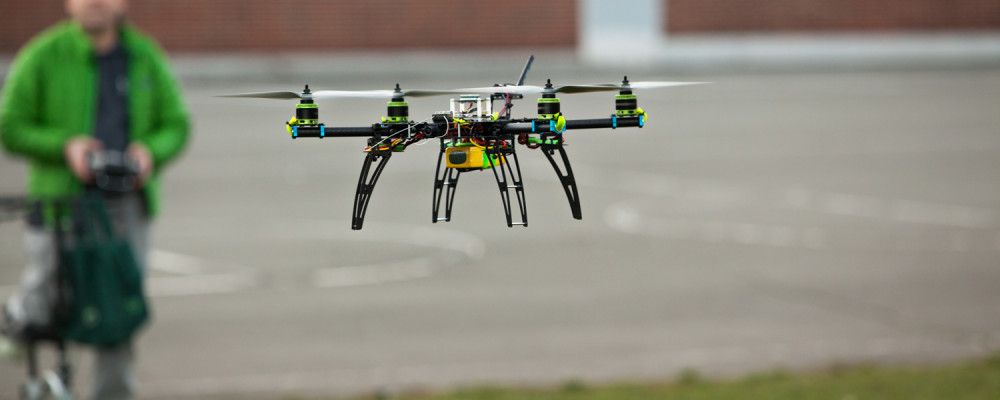Page 11771
Feb 6, 2015
This Drone Ambulance Is Totally Wild, And Totally Inevitable
Posted by Seb in categories: biotech/medical, drones
Mark Wilson — FastCo

“Obviously, it’s not a thoroughly vetted concept, but I think it’s extremely intriguing where drones might show up,” says Mark Rolston, founder of argodesign. “It would be nice to see them used this way, rather than another military function or more photography.”
The idea was born from a team brainstorming session around how health care could become more accessible. The designers first thought about how they could build a better ambulance, and the rise of autonomous vehicles inspired them to consider a self-driving ambulance. Then they thought of helicopters and drones, and the rest developed from there.
Feb 5, 2015
Women In Tech: This Platform Will Match You To Peer Mentors, Tinder-Style
Posted by Seb in category: business
Ariel Schwartz — FastCo

No matter how many coding initiatives for women and diversity programs are launched, the inescapable fact remains: The tech industry is overloaded with men, especially in the top ranks. It’s an vicious cycle. The more men are hired for top jobs, the more they tend to hire men themselves.
Entrepreneurs Eileen Carey and Lauren Mosenthal believe the best path to gender equality is peer mentorship—that is, mentorship from people at your same skill and career level. So they created Glassbreakers, an online platform that matches women in tech (product managers, software engineers, data scientists, and so on) with peer mentors. It’s a little like online dating for mentors.
Feb 5, 2015
Bitcoin libertarians now desperately need the government’s help
Posted by Seb in category: bitcoin
Quartz
 Bitcoin’s ideological foe is becoming its saving grace.
Bitcoin’s ideological foe is becoming its saving grace.
To many Bitcoin enthusiasts, the decentralized currency’s allure was that it was designed to exist beyond the reach of government regulation. Free from central banks, its value wasn’t tied to government policies or geopolitical factors.
But now it seems the very regulation its creator or creators (since we don’t actually know who first minted Bitcoin) guarded against is what’s now buoying the cryptocurrency’s price. Read more
Feb 4, 2015
Ray Kurzweil’s Mind-Boggling Predictions for the Next 25 Years
Posted by Seb in categories: human trajectories, singularity
By Peter Diamandis — SingularityHub
 In my new book BOLD, one of the interviews that I’m most excited about is with my good friend Ray Kurzweil.
In my new book BOLD, one of the interviews that I’m most excited about is with my good friend Ray Kurzweil.
Bill Gates calls Ray, “the best person I know at predicting the future of artificial intelligence.” Ray is also amazing at predicting a lot more beyond just AI.
This post looks at his very incredible predictions for the next 20+ years.
So who is Ray Kurzweil?
Feb 4, 2015
Drones Will Be Everywhere Watching, Listening, and…Planting Millions of Trees?
Posted by Seb in category: drones
By Jason Dorrier — SingularityHub

More and more people are getting to know drones, and not just the military kind.
Drones were one of the hottest gifts over the holidays because they’re not only getting easier to fly (though not yet a no-brainer), they’re also pretty affordable. In fact, a toy drone recently crash landed on the White House lawn, prompting President Obama to call for more regulations (something the FAA is already working on).
While these aircraft show the growing accessibility of drones, they belie their true potential.
Feb 3, 2015
As the Powerful Argue AI Ethics, Might Superintelligence Arise on the Fringes?
Posted by Seb in categories: robotics/AI, software, supercomputing
By Jason Dorrier — SingularityHub

Last year, Elon Musk and Stephen Hawking admitted they were concerned about artificial intelligence. While undeniably brilliant, neither are AI researchers. Then this week Bill Gates leapt into the fray, also voicing concern—even as a chief of research at Microsoft said advanced AI doesn’t worry him. It’s a hot topic. And hotly debated. Why?
In part, it’s because tech firms are pouring big resources into research. Google, Facebook, Microsoft, and others are making rapid advances in machine learning—a technique where programs learn by interacting with large sets of data.

A few months before she died, my grandmother made a decision.
Bobby, as her friends called her (theirs is a generation of nicknames), was a farmer’s wife who not only survived World War II but also found in it justification for her natural hoarding talent. ‘Waste not, want not’ was a principle she lived by long after England recovered from a war that left it buckled and wasted. So she kept old envelopes and bits of cardboard cereal boxes for note taking and lists. She kept frayed blankets and musty blouses from the 1950s in case she needed material to mend. By extension, she was also a meticulous chronicler. She kept albums of photographs of her family members. She kept the airmail love letters my late grandfather sent her while he travelled the world with the merchant navy in a box. Her home was filled with the debris of her memories.
Yet in the months leading up to her death, the emphasis shifted from hoarding to sharing. Every time I visited my car would fill with stuff: unopened cartons of orange juice, balls of fraying wool, damp, antique books, empty glass jars. All things she needed to rehome now she faced her mortality. The memories too began to move out. She sent faded photographs to her children, grandchildren and friends, as well as letters containing vivid paragraphs detailing some experience or other.
Feb 2, 2015
The Mathematical Wonders behind Bitcoin
Posted by Chris Evans in categories: bitcoin, business, education, encryption, finance, hacking, hardware, information science, innovation, privacy

Bitcoin as a cryptocurrency has had its moments of strength and weakness. The technology behind bitcoins, however, is a different story. While skeptics don’t expect a lot from Bitcoin as an alternative currency because of its volatility, they do have high hopes for the technological innovation that powers it, believing that it can be further developed to create something much powerful than Bitcoin itself.
To those who know Bitcoin as a great way of transacting online, but don’t completely understand its dynamics, it’s time to get acquainted with the cryptocurrency’s mathematical wonders that make anonymous, faster, and cheaper transactions of moving funds on the internet possible.
Most of us know that Bitcoin uses the SHA-256 hashing algorithm, but hashing serves a different function and purpose from that of digital signatures. Hashing actually provides proof that a message has not been changed because running the same hash always generates similar result.
Any message, regardless of the size can go into a hash function where the algorithm breaks it down, combines the parts, and “digests” it until it makes a fixed-length outcome called “digest”. However, a good hashing algorithm possesses some critical characteristics, in which the same message always produces the same result, as mentioned above, and it only works in one direction.
Continue reading “The Mathematical Wonders behind Bitcoin” »
Feb 2, 2015
Google Pledges $3 Million to Singularity University to Make Graduate Studies Program Free of Charge
Posted by Seb in category: education
Singularity Hub

Google, a long-time supporter of Singularity University (SU), has agreed to a two-year, $3 million contribution to SU’s flagship Graduate Studies Program (GSP). Google will become the program’s title sponsor and ensure all successful direct applicants get the chance to attend free of charge.
Held every summer, the GSP’s driving goal is to positively impact the lives of a billion people in the next decade using exponential technologies. Participants spend a fast-paced ten weeks learning all they need to know for the final exam—a chance to develop and then pitch a world-changing business plan to a packed house.









